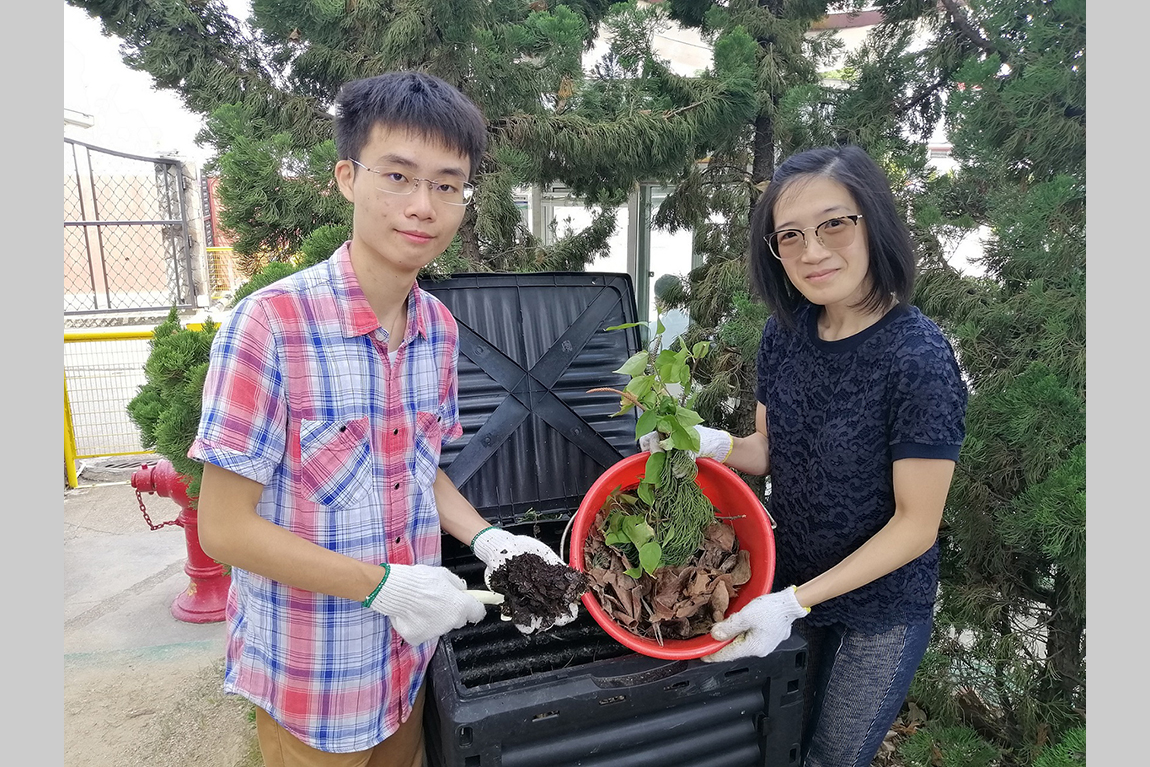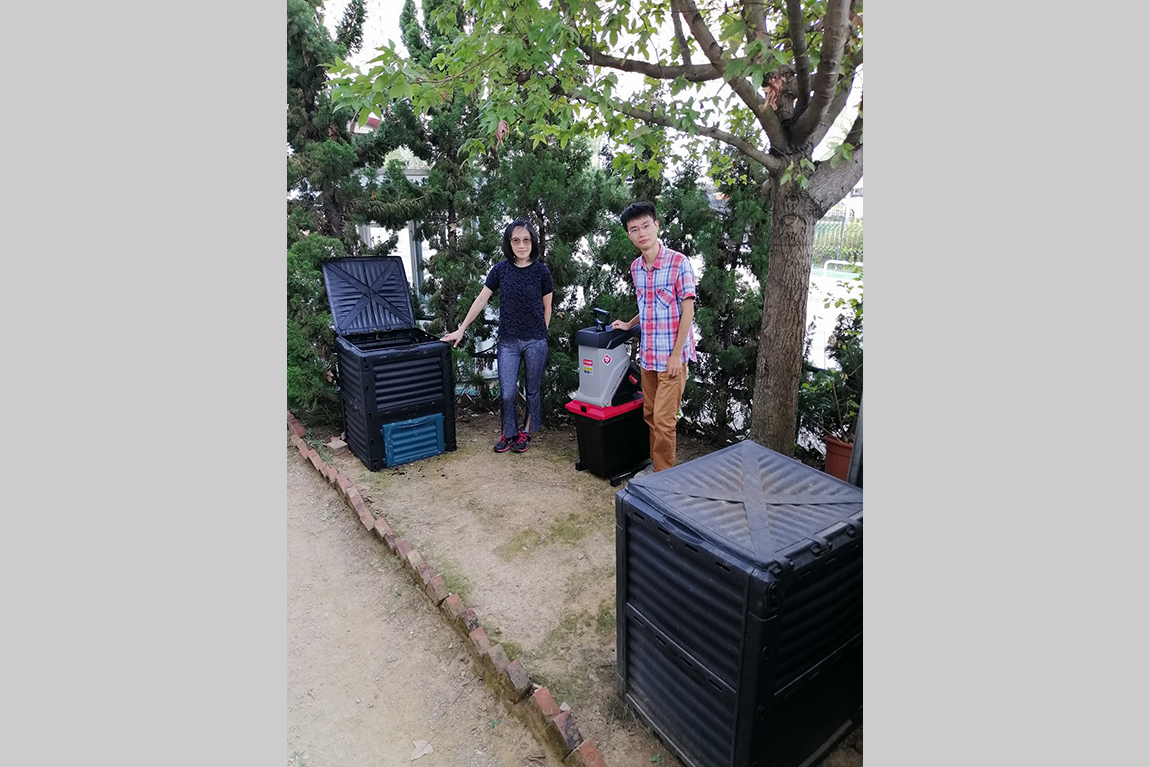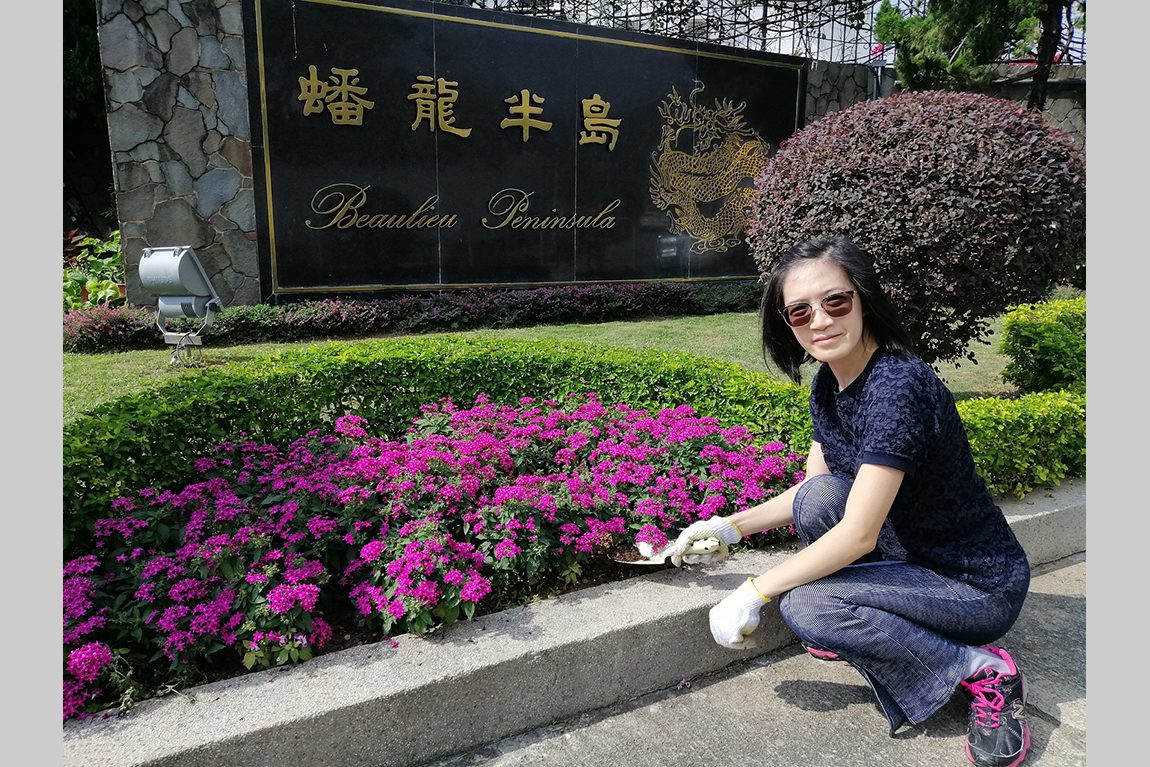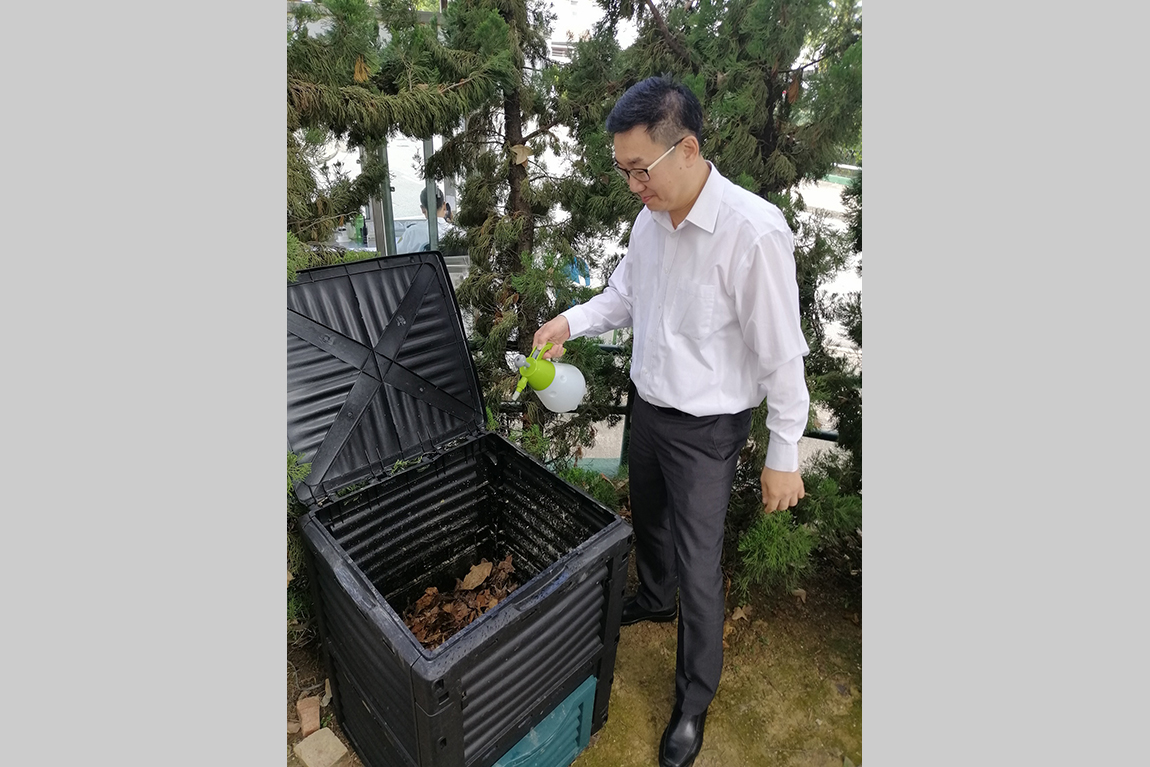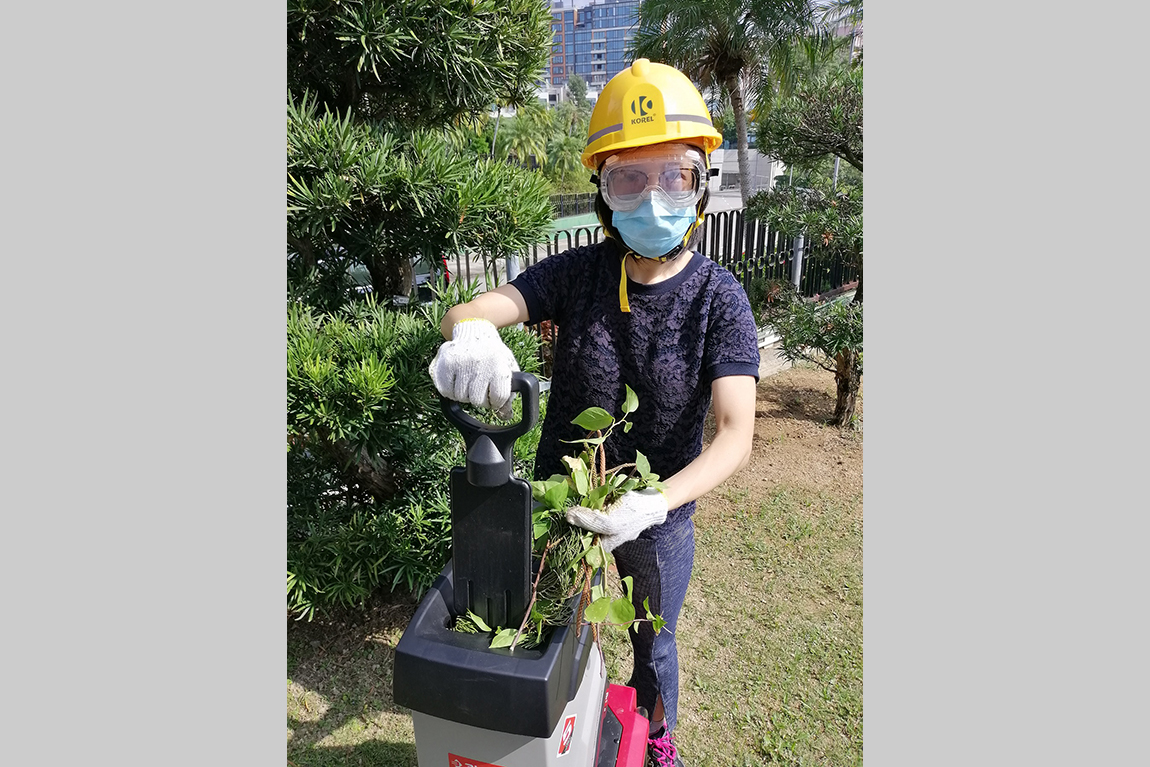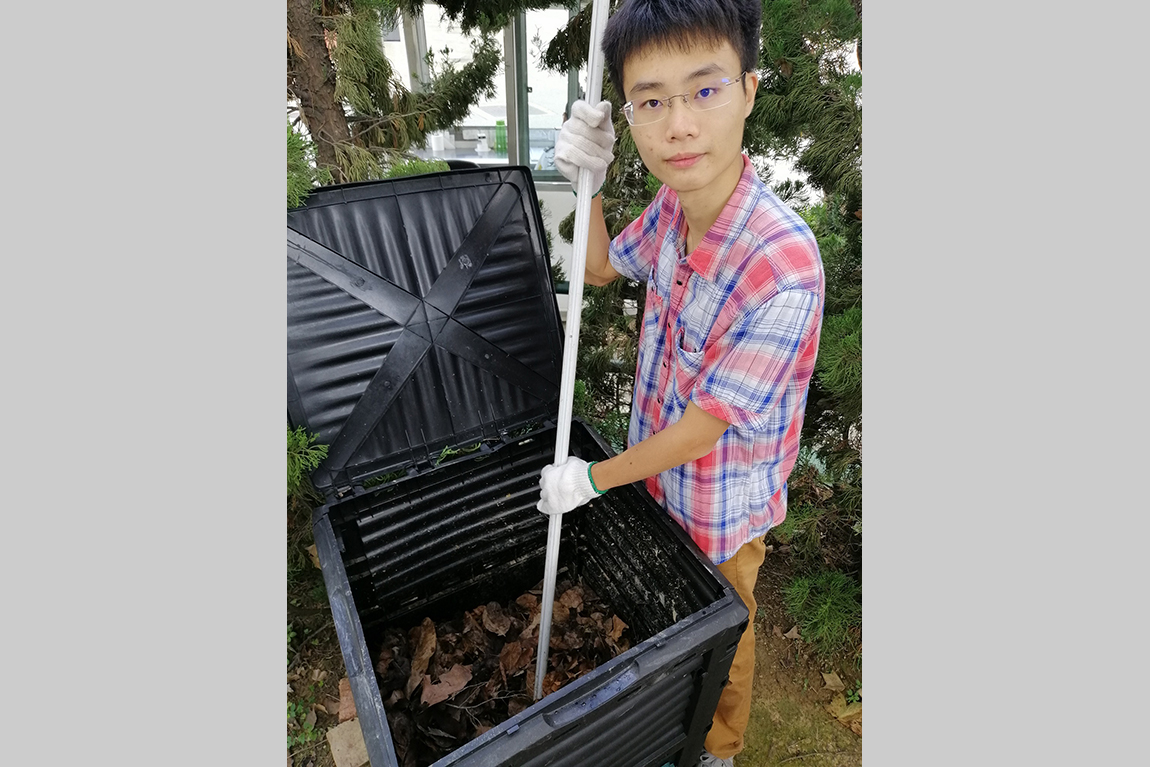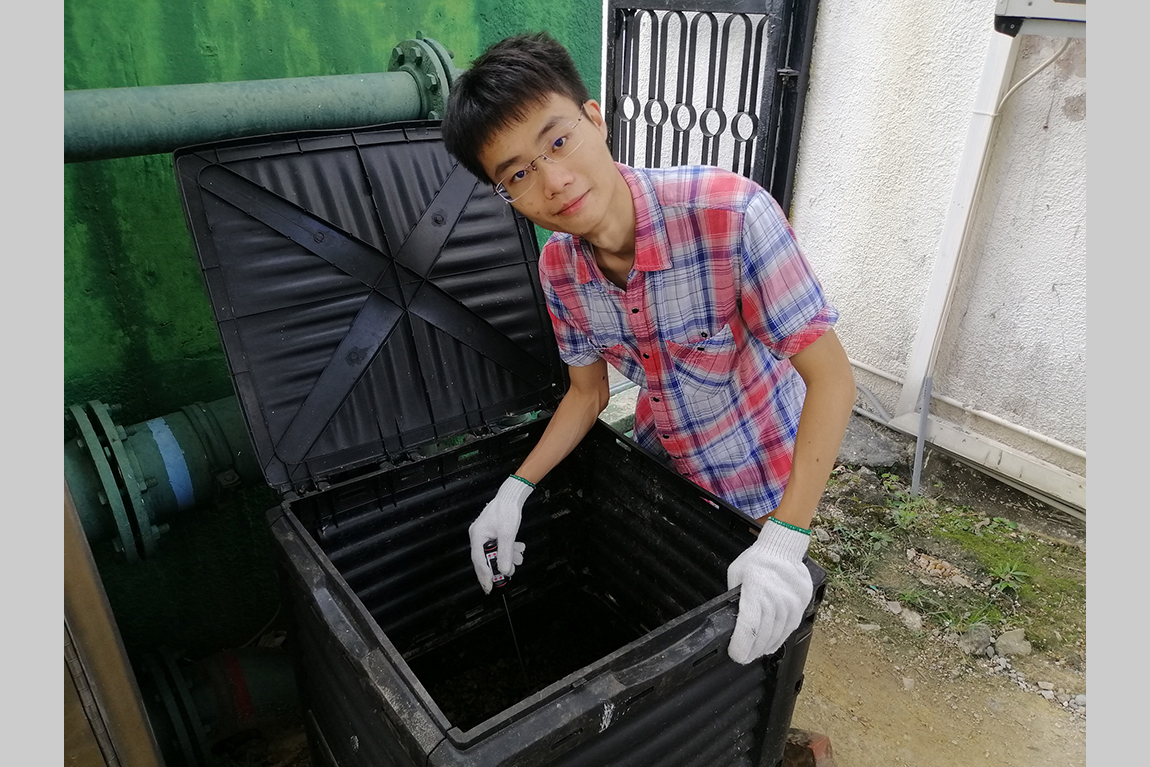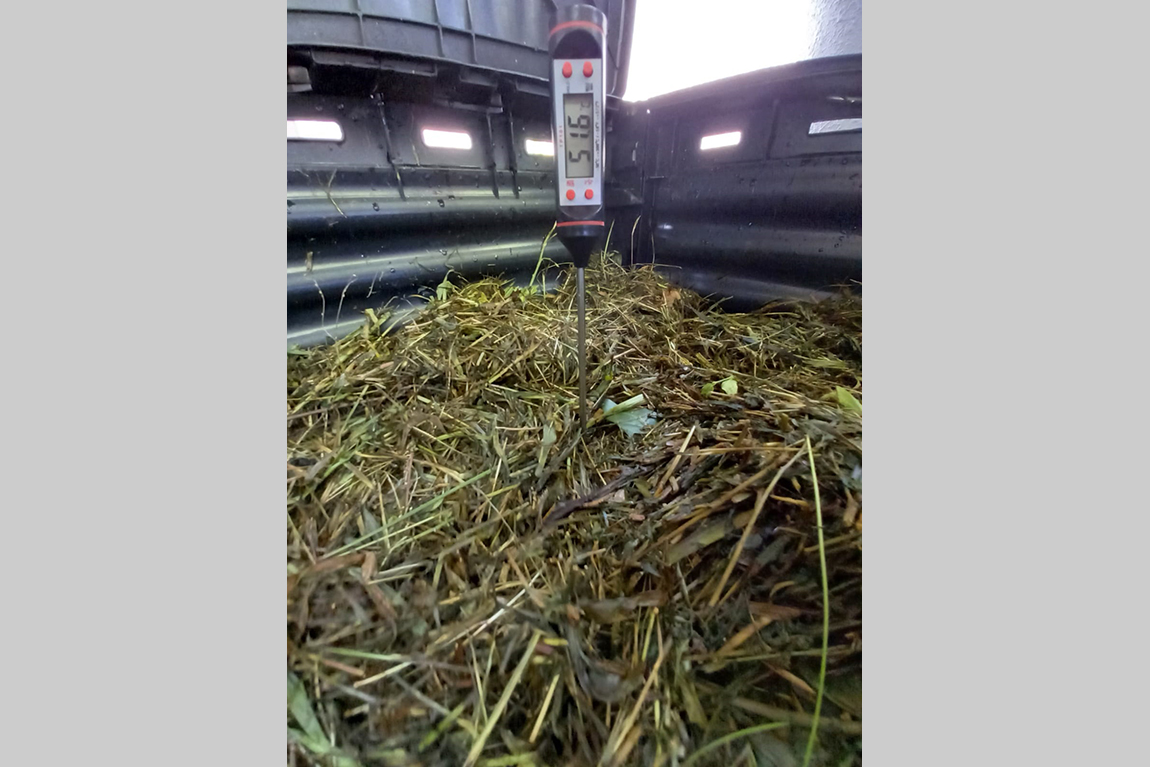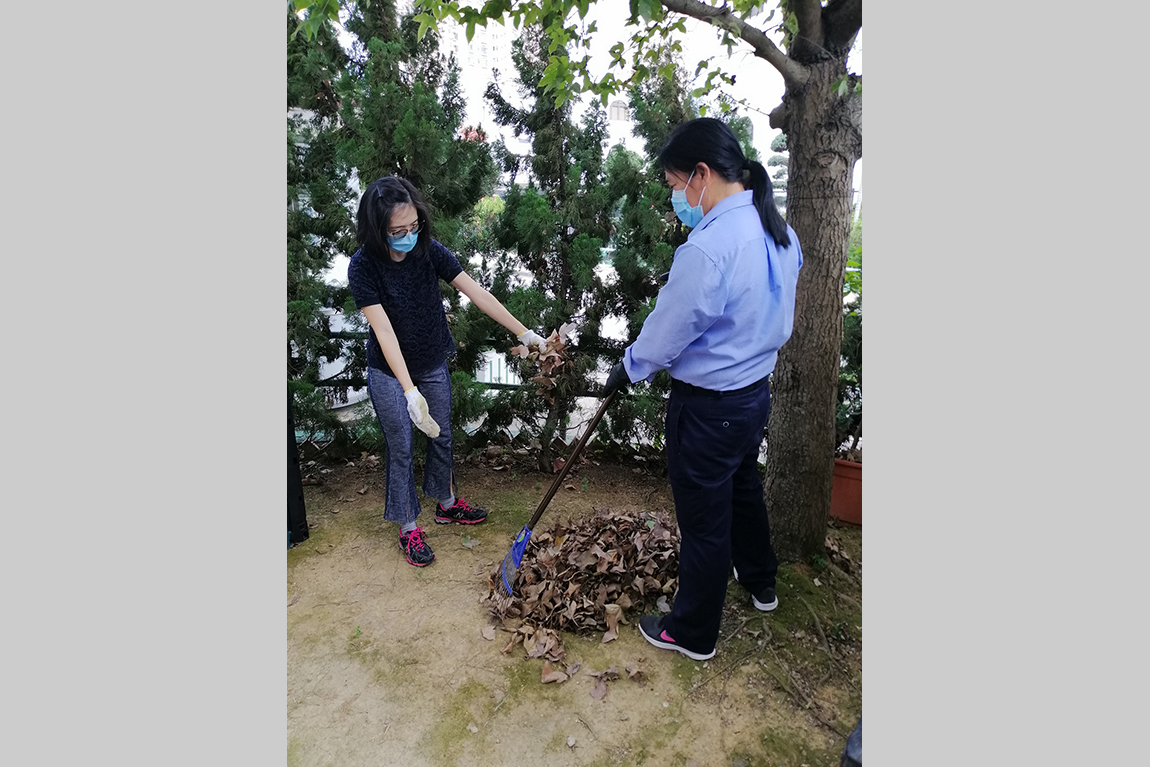THEi teacher and students promote sustainable use of yard waste and partner with housing estates for “on-site composting”
-
Christmas and Chinese New Year are approaching and a large quantity of Christmas trees and Chinese New Year flowers will be turned into yard waste after the festive days, taking up space in the landfills. Is yard waste doomed to do nothing? Earlier, the Technological and Higher Education Institute of Hong Kong (THEi) received support from the Environment and Conservation Fund to assist private housing estates in Hong Kong to collect household yard waste for “on-site composting”, and so give the yard waste “a new lease of life”.
According to the information of the Environmental Protection Department, about 160 to 180 tonnes of yard waste are disposed of each day in Hong Kong, typical of which are leaves, branches, tree trunks, weeds, and festive plants. Yard waste is mainly generated from daily greening and vegetation maintenance, but typhoons, the rainy season and festivities will also add to the volume of waste. A large bulk of this will be dumped in landfills as part of municipal solid waste, constituting about 1.5% of the total.
Internship inspires collection and recycling of yard waste
Graduate of the THEi Bachelor of Science (Honours) in Horticulture, Arboriculture and Landscape Management programme, AU Kok-leung, said, “During my internship at a landscaping company, I took part in tree pruning and inspection, which indirectly generated yard waste. It takes at least eight to ten or even a hundred years for a tree to grow whereas only a few minutes are needed to fell or prune a tree, with the yard waste ending up in landfills. What a pity. In fact, the twigs cut off can be recycled to reduce waste.”The dissertation of Kok-leung two years ago aptly explored the public’s attitude towards yard waste collection and recycling. He surveyed over 200 Hong Kong citizens by way of a questionnaire. Among the respondents, more than 50% said they would not refuse yard waste collection and recycling facilities in their housing estates. Close to 80% indicated concerns over whether yard waste treatment facilities were in line with the principle of environmental protection and more than 50% were concerned about their cost-effectiveness.
THEi collaborates with housing estates for “on-site composting”
In recent years, public awareness of proper yard waste treatment has grown. The HKSAR Government introduced “A Food Waste & Yard Waste Plan for Hong Kong 2014-2022”. To promote waste reduction at source, the HKSAR Government has also taken the initiative to fund community environmental protection projects. At the end of last year, the THEi Faculty of Design and Environment received funding from the Government’s Environment and Conservation Fund (ECF) to implement the “ECF Urban Yard Waste 3R - Pilot Scheme for Private Housing Estates”. The faculty will arrange talks, workshops and technical assistance to educate the property and greening management staff of housing estates, as well as the public, of the need to collect and recycle yard waste.Since March this year, THEi has provided equipment and organised workshops at Florient Rise in Tai Kok Tsui, Beaulieu Peninsula in Tuen Mun and The Pinnacle in Po Lam. There, they taught the property management staff to collect yard waste for “on-site composting” and upcycling. As pointed out by the team leader, Dr Caroline LAW Man-yee, Assistant Professor of the Department of Environment of THEi’s Faculty of Design and Environment, the steps in “on-site composting” are simple. One only needs to drop the collected branches, leaves of bigger sizes and trimmed plants into chippers and then put the resultant product into a composting container to be mixed with an appropriate amount of soil and water and, in the course of that, control the humidity, temperature and ratio of carbon-to-nitrogen. Wait for a few months and the organic yard materials will decompose into nutrients to be used in the green corners of the housing estates.
Caroline explained, “Yard waste is biodegradable. A large amount of it dumped into landfills will emit gases like methane and carbon dioxide, which will intensify the greenhouse effect. In the face of the shortage of landfill spaces in Hong Kong, we can take one more step to turn yard waste into fertilisers.” She said that the fertilisers converted from yard waste can ramp up water retaining capacity of the soil, raise the ability of soils to hold nutrients and promote the growth of beneficial micro-organisms, thus mitigating plant diseases. Dr Law went on to say, “Collecting yard waste for ‘on-site composting’ is to realise the principle of ‘From the estate, To the estate’, save the cost of transporting the yard waste and raise public awareness of environmental protection.”
Cost-effective composting
Students of the THEi Bachelor of Science (Honours) in Horticulture, Arboriculture and Landscape Management programme, HO Man and HUI Shun-yeung, also took part in the project. They go to housing estates regularly to inspect the progress of on-site composting and apply their knowledge in plant taxonomy and nutriology, as well as soils and the environment.Shun-yeung said, “To use yard waste for composting is something new to the public. The key to micro-organisms thriving and the composting matter decomposing properly is to ensure the appropriate temperature and humidity. We will explain and demonstrate to the property management staff of the housing estates how to maintain the humidity between 50% to 60% and the importance of turning the composting matter regularly to supply the right amount of oxygen.”
HO Man said, “Once, an estate representative was shocked to find red fungi in the composting container. Later, we explained to them that the fungi were a normal occurrence in the decomposition process. They were relieved to have heard that.”
Shun-yeung has loved planting from a young age. He is one of the first cohort of students who successfully applied for a sponsorship under the Study Sponsorship Scheme under the Urban Forestry Support Fund of the Development Bureau. He noted, “The study sponsorship, and the fact that the THEi programme is subsumed under the Study Subsidy Scheme for Designated Professions/Sectors (SSSDP), mean that my burden of tuition fees is greatly relieved, which helps me to achieve my dream to become a horticultural, landscaping or arboricultural expert over time.”
Mr YIP, Property and Facility Manager of Beaulieu Peninsula, is pleased with the effectiveness of “on-site composting”. He said, “On-site composting requires little additional expenses in water, electricity and manpower. The facility takes up little space as well, and there is no hygiene issue. Residents are very supportive of the project and some even took the initiative to provide household yard waste for composting.” Another participating estate, Florient Rise, has successfully produced three boxes of compost, mainly for use in the planting plot of the estate and for later distribution to households for planting.










